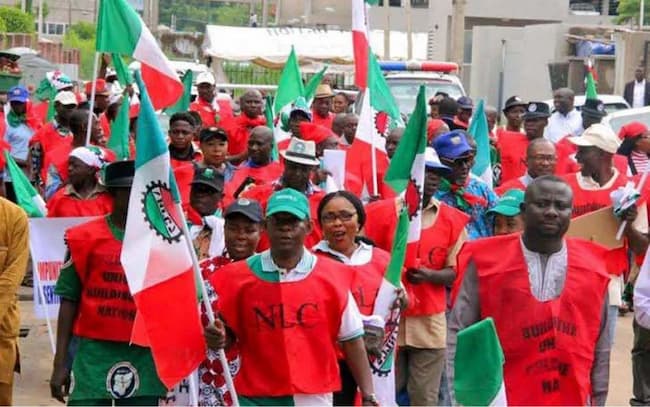Tensions between the Federal Government and organized labor have escalated following disagreements over the implementation of a memorandum of understanding (MoU) reached in October 2023. The Nigeria Labour Congress (NLC) and the Trade Union Congress (TUC) have threatened to declare a nationwide strike within 14 days, citing the government’s failure to fulfill its promises outlined in the MoU.
Minister of Information and National Orientation, Mohammed Idris, urged restraint from the unions, emphasizing the government’s commitment to addressing their grievances through dialogue. However, he declined to comment on the possibility of seeking a court injunction to halt the strike.
The genesis of the dispute traces back to the removal of fuel subsidies in May 2023, prompting negotiations between labor unions and the government. Among the agreements was the payment of a ₦35,000 wage award to federal workers, slated to commence from September 2023 for six months, alongside other measures aimed at mitigating the impact of subsidy removal.
In a joint statement, NLC and TUC accused the government of reneging on its commitments, highlighting significant delays in implementing key resolutions. They issued a 14-day ultimatum, demanding swift action from the government to honor the MoU.
Labour’s grievances extend beyond wage awards to encompass broader economic challenges, including food insecurity, inflation, and increased hardship faced by Nigerians. The unions emphasized the urgent need for the government to intervene and alleviate the suffering of citizens.
The looming strike has garnered support from various sectors, with affiliated unions expressing solidarity and readiness to join the industrial action if necessary. Concerns about the deteriorating economic conditions have prompted calls for decisive government intervention to stabilize prices and address escalating hardship.
In response to the mounting pressure, the Federal Government faces mounting scrutiny over its handling of the economic crisis. Calls for intervention include the establishment of a Price Control Board to regulate essential commodities and address rising costs.
Legal actions have also emerged, with human rights lawyer Femi Falana challenging the government’s failure to enforce existing laws aimed at controlling prices and protecting consumers’ interests. Falana’s lawsuit underscores broader discontent with the government’s perceived inaction in addressing economic challenges.
As tensions escalate, both the government and labor unions find themselves at an impasse, with the fate of millions of Nigerians hanging in the balance. The outcome of negotiations in the coming days will undoubtedly shape the country’s socio-economic landscape and determine the path forward amidst mounting uncertainty and discontent.











